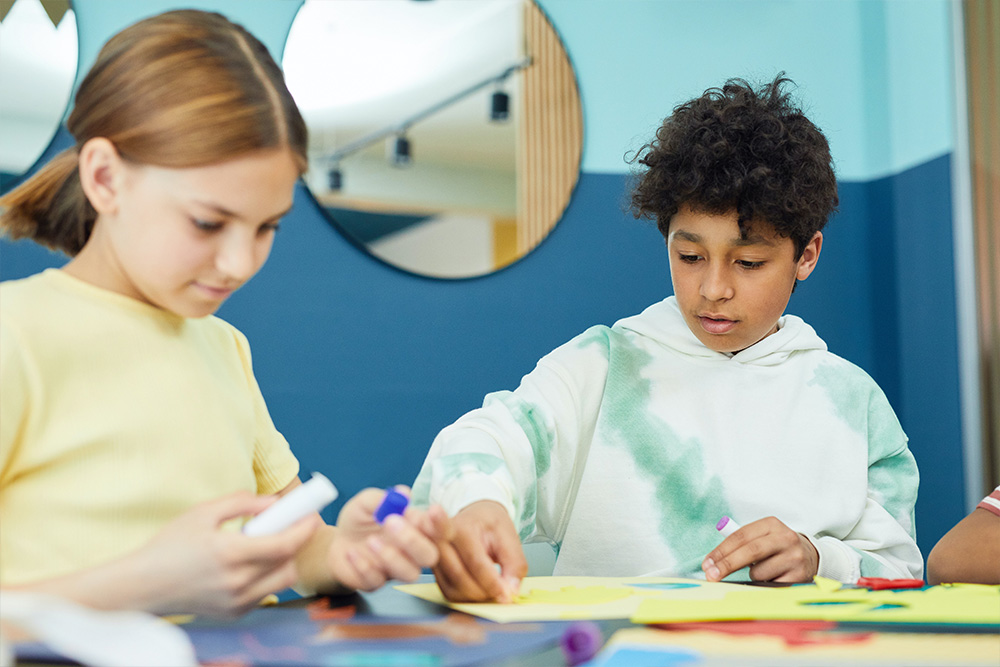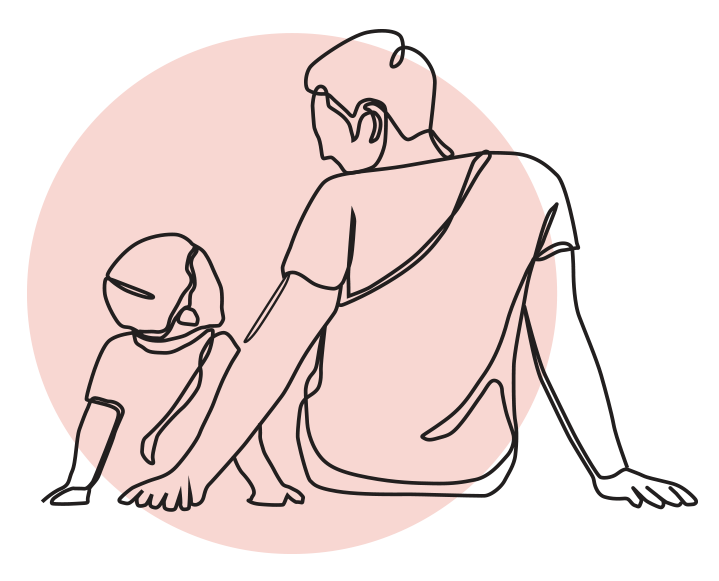If it’s not your industry, finding a therapist (or counsellor) for your child can be a confusing and sometimes stressful business. Making sense of the many different kinds of therapist qualifications, registering bodies and the huge variation in fees can be overwhelming. If you do think you’ve found just the right therapist, they may have long waiting lists or live miles away. Here we aim to make the process easier by giving some information on qualifications, approved databases and what Child in Time can do to help.
When to Seek a Child Therapist or Counsellor
The first step is deciding whether your child’s behaviour requires them to receive therapy. Whilst we can all benefit from therapy and it is certainly not going to do harm, it can be expensive so knowing if it is the right course of action is important.
Signs that it is time to get help:
Your child’s behaviour has changed or deteriorated to the point where their mental health is affecting everyday life, such as friendships, eating/sleeping, school attendance.
Or
Your child has experienced a significant trauma or is coping with the serious illness of a loved one, even if they are not showing signs of distress.
First Points of Contact
It may be helpful to speak to your child’s school initially in case they have a counsellor or therapist who could provide free sessions. Some children benefit from therapy in school as it is a familiar environment and they are often used to seeing other children attend therapy. However, other children may find it hard to engage in school as they are worried about what others might think.
It can be a good idea to see your GP. They may identify other physical factors that could be having an impact. They may also be able to make a referral to CAMHS (Child and Adolescent Mental Health Services), which is an NHS service where children are assessed and a treatment plan is then recommended. However, the reality is that CAMHS waiting lists tend to be long and the threshold for referrals is high. Finally, your GP may be linked in to local trusted mental health providers that they could recommend.
Finding a Therapist Yourself
If you are at the point of looking for an independent therapist the following information may be helpful. We highly recommend employing a therapist who has been specifically trained to work with children.
Types of Accredited Therapists/Counsellors
Art Therapists
Art Therapists, Drama Therapists, Movement Therapists, Play Therapists – these forms of therapy require practitioners to be specialist in psychotherapeutic skills as well as modes of creativity. They are especially helpful for young children and those with verbal impairment but are also popular with adolescents and adults, as creative expression supports regulation and processing of trauma.
Cognitive Behavioural Therapist (CBT)
CBT therapists employ a more structured and often short term approach that focuses on a child’s unhelpful thoughts and behaviours and aims to identify and modify them into more positive ones.
Child Psychotherapist
The approach of Child and Adolescent Psychotherapists seek to look beneath the surface of difficult emotions, behaviours and relationships to help children, adolescents and their families to understand themselves and their problems. They are trained to carefully observe what a child or young person might be communicating non-verbally through their behaviour and play. An integrative psychotherapist is one who is trained to use a range pf psychotherapeutic approaches to treat clients.
Child Counsellor
This is a very broad term so it’s important to look at the specific training and experience if you are employing a child counsellor. The minimum of a PGdip qualification (post graduate diploma) or level 5 counselling is recommended. Some Child Counsellors will focus more on a specific problem and less on a child’s past and may offer a shorter term treatment but many counsellor’s will work in a similar way to child psychotherapists or art therapists (see above).
Child Psychologist
Psychologists are trained to doctoral level in psychology backgrounds, and their focus is typically diagnosing and conducting evaluations and assessments to support the work of therapy and counselling, although they may carry out some focused therapeutic work in addition.
Finding a Trusted Clinician
Some titles, like counsellor and psychotherapist are not protected, meaning anyone can be called one, check for the use of “registered” in front of their title to ensure they are fully qualified. In order to ensure that the therapist that you employ has the correct qualification and follows best practice guidance always gain verification of their membership of a recognised registering body. Child in Time for example is an organisational member of British Association for Counselling and Psychotherapy (BACP), other professional bodies include:
Health and Care Professions Council
British Association for Behavioural and Cognitive Psychotherapies (BABCP)
Association of Child Psychotherapists
British Association of Play Therapists
A full list can be found here.
You can aso check a therapists’ registered status here.
Finding a Local Therapist
Once you have decided which type of therapist you would like to employ, there are a number of online directories which require practitioners to prove their registered status in order to list their services. These can help you to find a local therapist with the right training and experience:
BAAT – art therapists
BACP – counsellors/psychotherapists
UKCP – counsellors/psychotherapists
BAPT – Play Therapists
When choosing a therapist it is a good idea to set up a few initial meetings, as successful therapy relies as much on a good relational match as it does on the skills and experience of the therapist. Many practitioners will offer free initial phone calls or reduced initial meetings.
Here are some ideas of what to ask in an initial meetings:
- What is the age range of who they work with?
- How much experience does the therapist have?
- Have they worked with children and families with concerns similar to what is bringing your child to therapy?
- Are they doing online, in-person, or a combination for sessions?
- How can you best support your child’s mental health needs at home?
- What modality does the therapist work in? (Most younger children will probably be doing some kind of play-based therapy)
- Do they work in school holidays?
- What is their session cancellation and therapy termination policy?
How Can Child in Time Help:
Child in Time specialises in counselling for children within the school environment. We do not provide private counselling or therapy for children but we do have online parent consultation sessions. Through our online parent consultation sessions, our family specialist practitioners can advise you on how to find a therapist. Sometimes it can help to talk to someone in order to establish a plan of action for finding the right therapist.
A Child in Time specialist can talk through your child’s presentation and history in order to advise on which type of therapist might be suitable as well as any other family interventions that might be sought, such as family sessions, ongoing parent support or practitioners that will support a child’s wider well being and development, such as an Occupational Therapist.
We hope this helps and wish you all the best in finding the right therapist for you and your family!




